Post
A catch
Save a catch to start your fishing logbook. You will be able to to share it with the community if yo want!
A fishing trip
Post an ad to go fishing with other fishermen
Save a catch to start your fishing logbook. You will be able to to share it with the community if yo want!
Post an ad to go fishing with other fishermen
Share a thought, a question with the community
My favorite cities
×Join our 598 fishermen and our 1 cofisherman in Manningtree in Essex. The fishing forecast is currently 3.9. The most caught fishes here are the dab fish, the mackerel fish, the pouting fish and the smoothhound fish. Come try the most famous fishing techniques like the surfcasting for sole , tips on troll fishing material for leerfish, deep-sea fishing or trolling for bonito.
Our fishing forecast of Manningtree indicates the best time to go fishing in this city.
The Dab fish
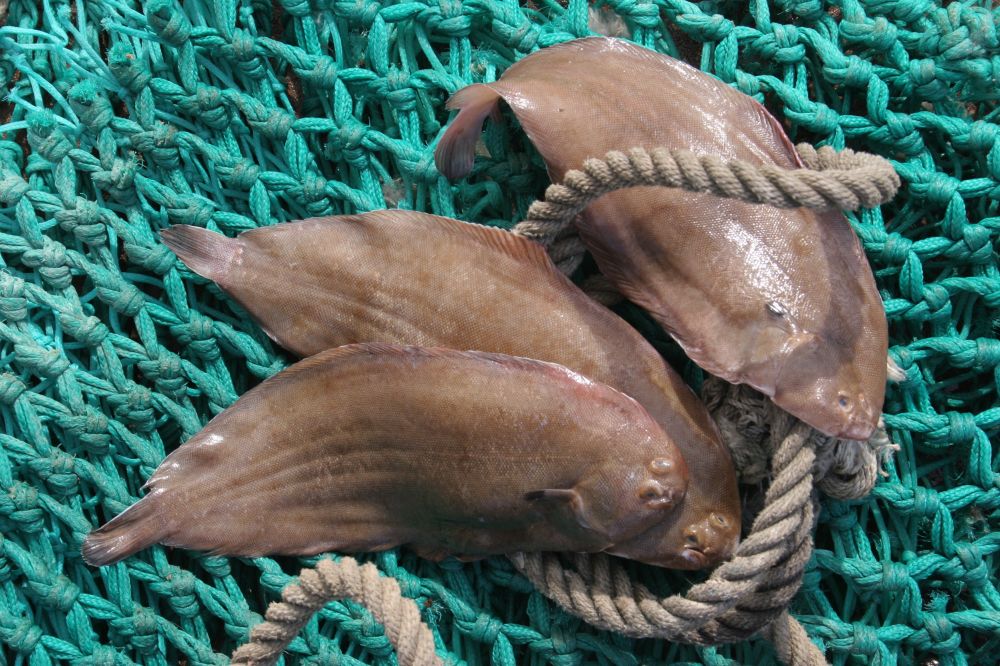
The Dab fish belongs to the Pleuronectidae family. It has an average size of 25 to 40 cm with an average weight of 1 kg. It has a lifespan of 12 years. The Dab fish breeds from February to April. The female lay up to 150,000 oocytes. The Dab fishing is open from October to Mars. the minimum catch size is 25 cm. The Dab fish, scientifically named Limanda Limanda, is a teleosteal species that belongs to the pleuronectidae or flatfish family. It has a flattened body with a more or less oval shape. The eyes of this dexterous fish are both generally located on the right side. The animal has a tiny mouth with small teeth. Its lateral line is curved at the pectoral fin. A characteristic feature that allows it to be easily distinguished from other species with similar morphology such as flounder. Thin scales cover the upper surface of the flounder, making its skin rough to the touch. The back is golden or yellowish brown in color and has dark spots. The belly or blind face is white. Varying from beige to light brown, the general color of dab allows it to blend in with the backgrounds.
The Dab fish is a famous fish you can catch in Manningtree.The Mackerel fish
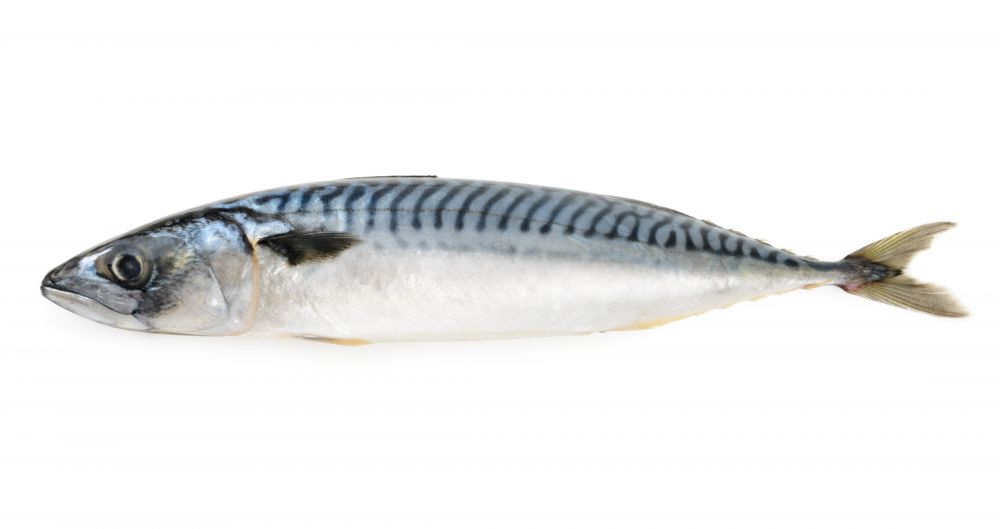
The Mackerel fish belongs to the Scombridae family. The average size of adult mackerel is 30 to 40 cm and its weight ranges from 500 g to exceptionally 1.5 kg. It can live up to 17 years. It reproduces from March to September. The female can lay 450000 eggs. It can be fished all year round. The streamlined body and pointed head of the mackerel, give it an excellent swimming quality (up to 10 km/h). The characteristic feature of mackerel is its blue-green back zebra with more or less oblique and parallel dark lines, while the sides and belly are silvery white. There are 23 to 33 dark chevrons depending on the individual and include the forehead between the two eyes. The fins of mackerel are grey. It has two widely spaced dorsal fins, the first being characterized by 10 to 13 thorny rays. In addition, it also has two pectoral fins (dark based), two ventral, one anal and one caudal. The caudal is preceded by 5 small feathered fins on the dorsal and ventral sides called pinnules. The tail is very indented.
The Mackerel fish is a famous fish you can catch in Manningtree.The Pouting fish
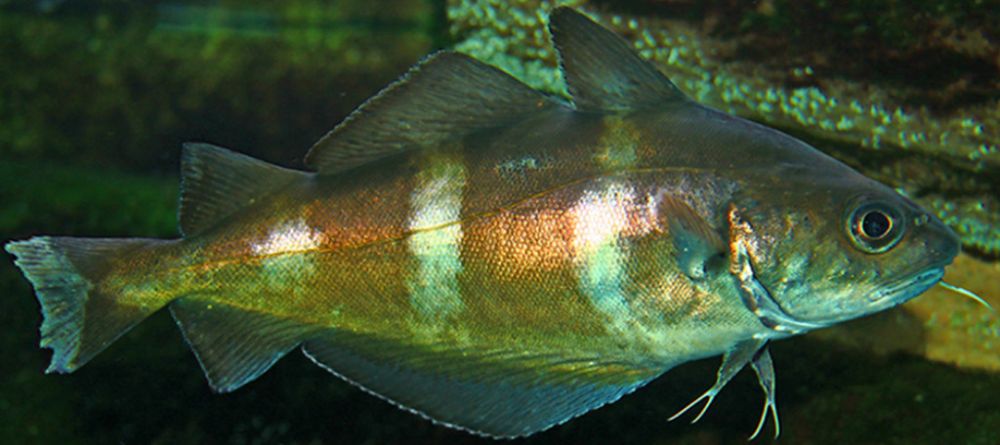
The Pouting fish belongs to the Gadidae Family. Its longevity is short: 4 years for a maximum size of 45 cm and a weight of about 1kg. Breeding takes place in March-April and is fished all year round. This small fish, generally 20/30 cm, rarely 45 cm, has an oval body, flattened laterally. Beige/pinkish white, slightly coppery, it can, especially when it is close to a poorly lit area (cave, wreck), have four to five wide dark vertical stripes. These bands may be absent in sunlight or on dead fish. The lower jaw is slightly set back, giving the pouting fish a characteristic profile with a small "nose". The eye is quite large, and a barbell is clearly visible under the "chin". The pouting fish has, like other Gadidae, three dorsal fins and two anal fins. A black spot is clearly visible at the base of the pectoral muscles.
The Pouting fish is a famous fish you can catch in Manningtree.The Smoothhound fish
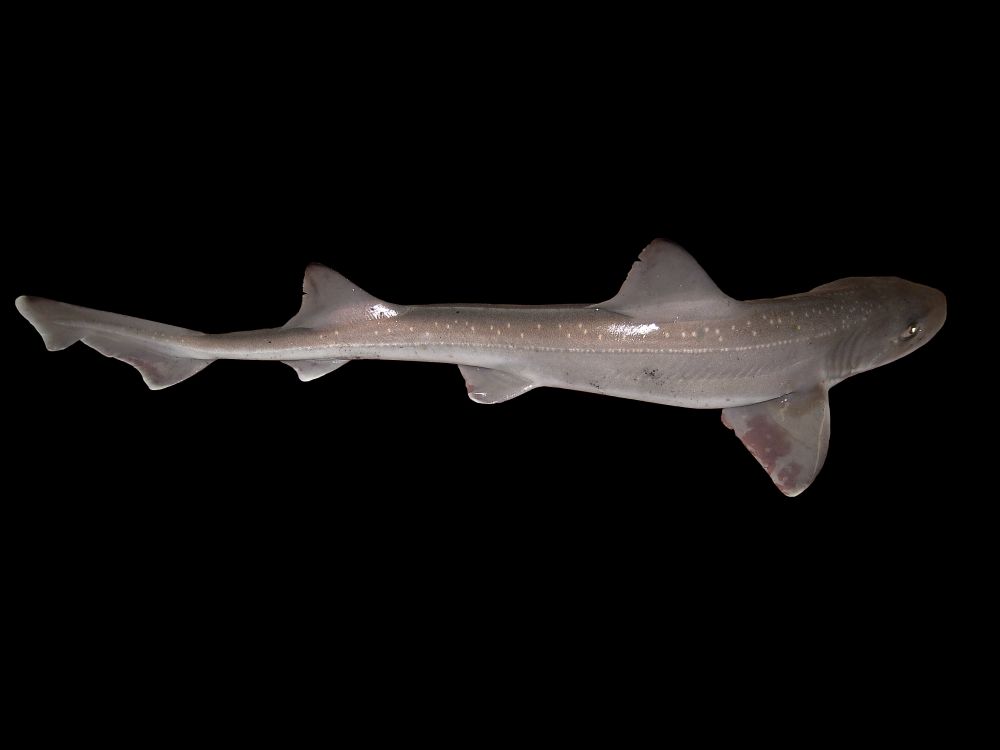
The Smoothhound fish belongs to the Triakidae family. In exceptional cases, the emissole can reach a length of 160 cm, but it is common between 60 and 120 cm. He can live for about twenty years. Breeding takes place between June and March. The female can give birth to 10 or 20 young. It is mainly fished in the summer. The Smoothhound fish is a cartilaginous fish (the skeleton is composed of cartilage elements) of medium size. The body is elongated and tapered. The head is compressed in the upper part and the muzzle is long and rounded. The mouth, located at the bottom, is oblique and equipped with a series of small and low teeth, which may be less rounded in young people. The nostrils, in a ventral position, have a large opening, and are closer to the mouth than to the top of the muzzle. The eyes are small, round in young subjects, and horizontal oblong pupil (typical of deep-sea species) in adults. On the muzzle, there are sensory organs for depth detection (hydrostatic). Next to the terminal part of the head, there are five gill cracks. A subtle but distinct fold of the skin is found along the back, from the tail to the gill cracks. The skin (shagreen skin) is almost smooth. The dorsal fins are two, triangular in shape, the second is slightly smaller than the first. The pectoral muscles have a rounded and slightly concave inner top. The caudal fin has two non-symmetrical lobes (the upper part more developed). The anal fin is present. The colouring of the back and sides ar
The Smoothhound fish is a famous fish you can catch in Manningtree.The Sting Ray fish
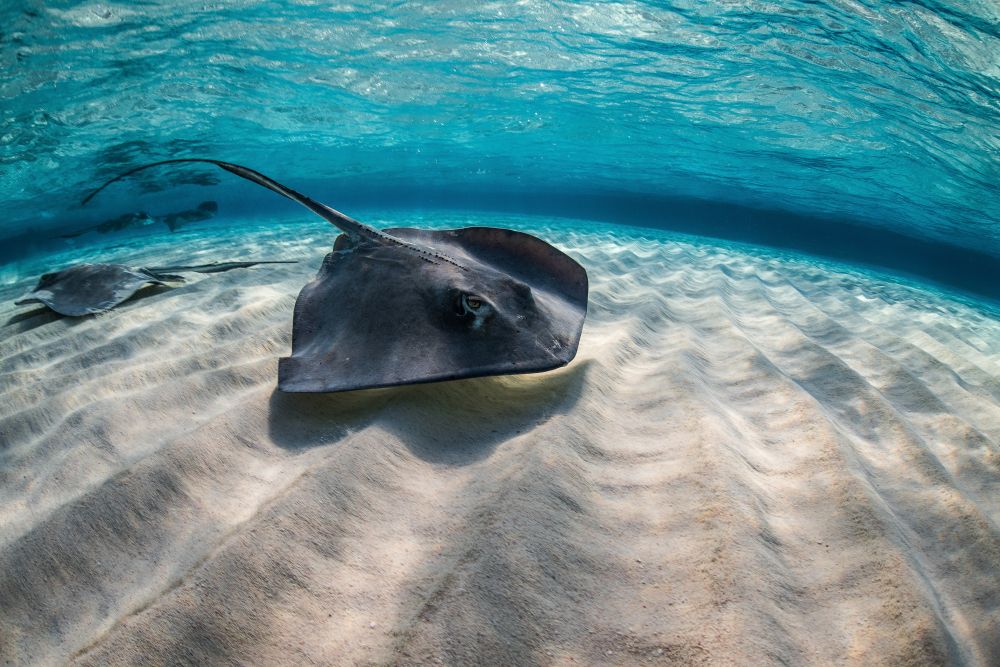
The Sting Ray fish belongs to the Dasyatidae family. The total length of this line is generally greater than 1 m, with a weight of 15 to 20 kg. The maximum known length is 2.50 m. The maximum lifespan is 20 years. Breeding usually takes place in summer. The female gives birth to 4 to 9 young. It can be fished all year round. The body of the sting ray is flattened, diamond-shaped, pointed at the front, with large pectoral fins: it is as wide as it is long. The tail, representing 60% of the total length, looks like a whip and, at one third of its base, it has a serrated spine, connected to venomous glands under the skin. The dorsal surface is bluish grey or reddish-grey in color, sometimes with white spots. This back is smooth, without tubers. The ventral side is clear. The sting ray has no dorsal fin or caudal fin and its pelvic fins are very small. The eyes are located on the dorsal surface while the mouth, nostrils and gill slits (five slits on each side) are on the ventral surface. The eyes are prominent, which gives him a very wide field of vision. Next to the eyes, an inhalant valve, called a spiracle, carries water into the gills. The mouth is located quite far back. Teeth are numerous and small, pointed in males and molar-shaped in females. The tail acts as a simple rudder and is not used for movement. It is done by the large pectoral fins, by beating. These fins are also used for burying in sand.
The Sting Ray fish is a famous fish you can catch in Manningtree.Our fishing forecast of Manningtree indicates the best time to go fishing in this city.
Our fishing forecast of Manningtree indicates the best time to go fishing in this city.
Our fishing forecast of Manningtree indicates the best time to go fishing in this city.
